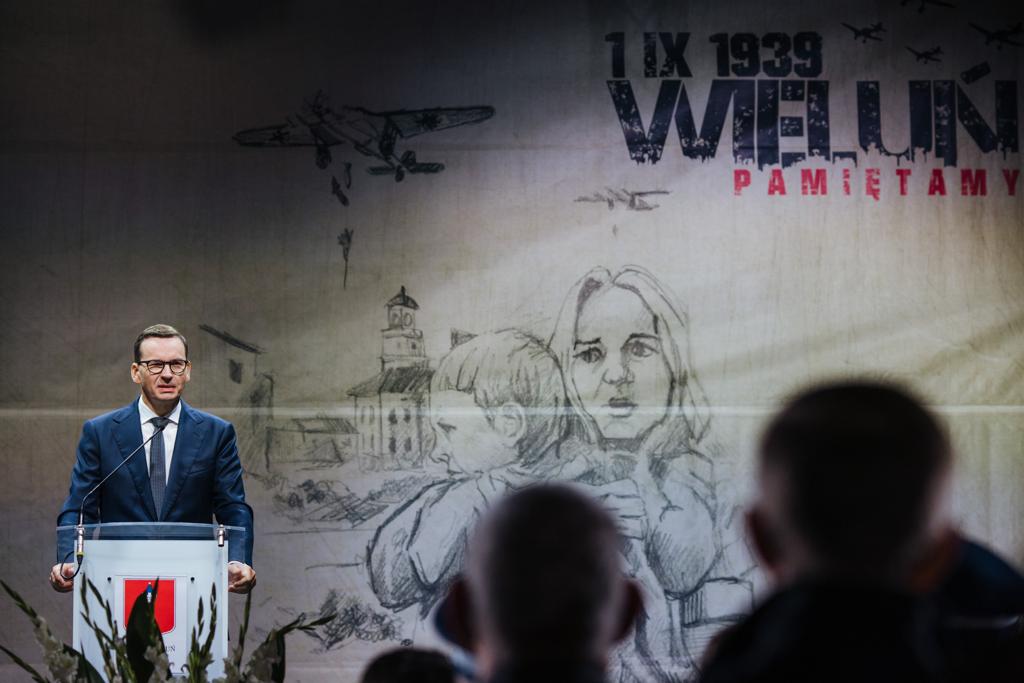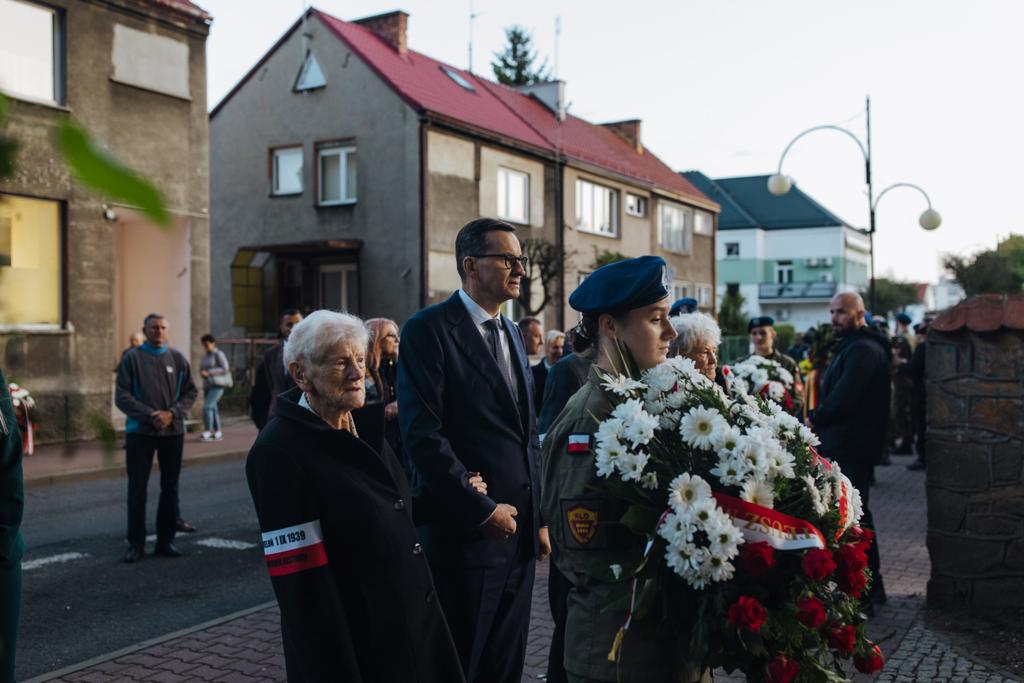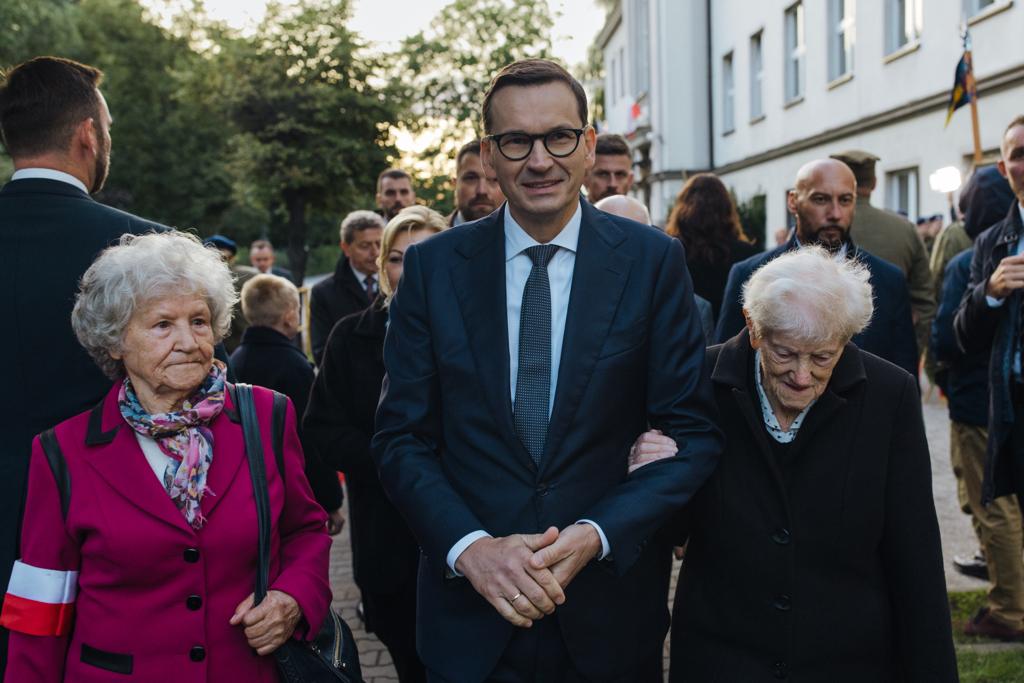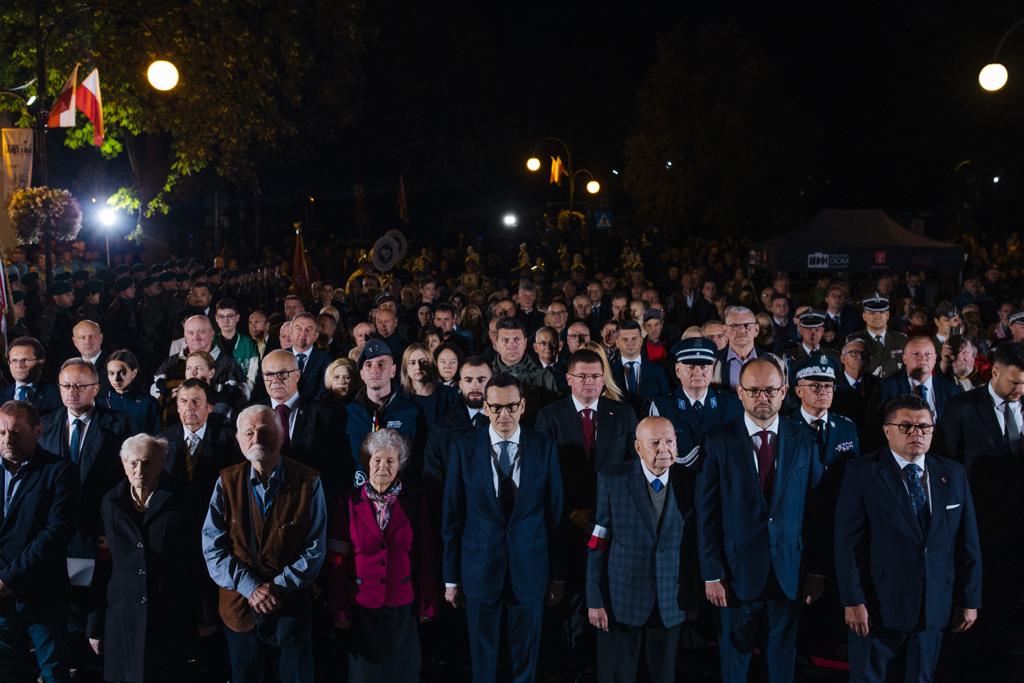
“From that moment, from that day, the apocalypse began for the Polish nation. The goal of the German Third Reich was to destroy the Polish state and annihilate the Polish nation. The hecatomb that began then led to dramatic consequences” – Prime Minister Mateusz Morawiecki said during the ceremony in Wieluń commemorating the outbreak of World War II. On September 1, 1939 at 4:40 am, the Third Reich attacked Poland, starting the bloody World War II. Wieluń, bombed at dawn by the Germans, was the first victim of the barbaric warfare. On the 84th anniversary of these events, the head of the Polish government appealed not only for the memory of the victims, but also for compensation.
84 years ago, on September 1, 1939, World War II broke out. It started with the Nazi attack on Poland. The first victims of this war were the inhabitants of Wieluń, who died in the German bombardment that day at dawn. The head of the Polish government commemorated this event by taking part in the celebrations of the 84th anniversary of the outbreak of World War II.

“World War II did not start with some regular battle, with a clash of two armies. World War II began here, when Luftwaffe planes dropped bombs on an innocent city at 4:40 am. A city that had no military significance” – emphasized Mateusz Morawiecki. And he added: “This goal, this sense of the attack on Wieluń, the murder of civilians, was intimidation, destruction and annihilation”.
The attack on Wieluń started the greatest conflict in the history of the world. The USSR joined the attack of Nazi Germany on September 17, 1939. The victims of the bloody clash were the Polish population, but also the cultural heritage of our nation, which was destroyed or plundered by the aggressors.
“From that moment, from that day, the apocalypse began for the Polish nation. The goal of the German Third Reich was to destroy the Polish state and annihilate the Polish nation. The hecatomb that began then led to dramatic consequences” – noted Prime Minister Mateusz Morawiecki. The head of the Polish government reminded that with the German attack on Poland, “our chances for development, our development opportunities were lost forever”. “Nothing after World War II was as it could have been. It must be remembered that World War II, like no other event of the last centuries, decided who is the winner and who has to chase the stolen time of the past, who has to make up for five lost decades. And if we look at it from this perspective, we have to ask ourselves another question. Can there be a real reconciliation between partners without reparation? In psychology, it is sometimes said that in order to move forward, you have to put a difficult past behind you to close a difficult chapter in history. I think this analogy can also be applied to relations between nations and between states” – the Prime Minister said. He pointed out that “Poland and Germany are today partners in the European Union, but in order for them to function normally in the future, they must close this black chapter of the hecatomb of World War II, the moment when the German nation wanted to annihilate, wipe out the Polish nation from the earth, Polish children, women, men, because that was the plan”.

“We will not bring those victims back to life, but we owe them more than just the memory that the mayor just spoke about. ‘We remember’ is not enough, we must also make amends, so I will not rest until this painful wound is at least partially soothed in this way” – Morawiecki declared.
“These were ordinary Germans, who pushed Poland into this abyss”
“It was not some impersonal entities that pushed Poland into this terrible abyss of World War II. Not only an entity called ‘the German state’. These were ordinary Germans, who pushed Poland into this abyss” – he recalled, pointing out that many of them have never been held responsible for crimes they have done. “Millions of those who inflicted this apocalypse, this fate on Poles, did not face any punishment” – he did not hide his bitterness.
“Today, 84 years after the outbreak of World War II, when we talk about executioners, victims, punishment, suffering, when we use the most important words like good and truth, when we juxtapose good and evil, we demand not only memory, not only the truth. We demand compensation. This compensation in the form of reparations is necessary so that that page of history, that chapter of history, can be closed” – the head of the Polish government noted.

“We are here to demand justice, to demand truth, to demand redress” – he concluded.
AW
Source: KPRM
